
Have you ever woken up in the middle of the night with a jolt? Due to severe foot pain, you're not alone. Many people experience this as comfort, often leaving them confused and worried.
Today, we're tackling a topic that many of you have been asking about: foot pain at night. You know that feeling when you're trying to get some shut eye, but your feet won't stop hurting.
Yeah, we've been there too!
We will dive deep into the top 7 reasons behind nighttime foot pain and share some awesome tips to help find sweet relief.
You may be wondering why you're suddenly jolted from sleep with severe foot pain at night. Nightcrams are like surprise attacks on your feet; they strike when you least expect them, and boy, do they hurt.
7 Common Causes of Foot Pain at Night
1. Plantar fasciitis
If you find yourself waking up with a stabbing pain in your heel, you might be dealing with plantar fasciitis. This common condition is characterized by inflammation of the plantar fascia, a thick band of tissue running along the bottom of your foot.
Pain from plantar fasciitis is often most intense after periods of rest, such as during sleep. Stretching exercises, proper footwear, and physical therapy can help manage and alleviate symptoms.
2. Peripheral neuropathy
Patients with nerve damage often experience tingling, burning, or numbness that can occur at night and either keep you up or wake you during sleep. Peripheral neuropathy occurs when there’s damage to the nerves outside your brain and spinal cord, such as those in your feet.
Diabetes is the most common cause of peripheral neuropathy, and if you have this condition, it’s crucial to take special care of your feet.
3. Arthritis
Joint pain that gets worse at night can be a sign of arthritis affecting your feet. Whether it’s osteoarthritis or rheumatoid arthritis, inflammation and stiffness in the joints can make it difficult to find a comfortable position while resting.
Over-the-counter anti-inflammatory medications, physical therapy, and lifestyle changes can help manage arthritis symptoms and reduce nighttime pain.
4. Tendinitis
Tendinitis can cause foot pain to flare up after a long day of activity, and it can worsen when you’re trying to rest. This inflammation of the tendons can occur in several areas of the foot, including the Achilles tendon and the tendons on the top of the foot.
Rest, ice, compression, and elevation (RICE) are initial treatment strategies, along with anti-inflammatory medications and physical therapy.
5. Tarsal tunnel syndrome
If you’re experiencing burning, tingling, or sharp pain along the inside of your ankle, especially at night, tarsal tunnel syndrome could be the issue. This condition strikes when the posterior tibial nerve is compressed or otherwise irritated.
Treatment options include anti-inflammatory medications, orthotic devices, and, in severe cases, surgery to relieve the pressure on the nerve.
6. Restless legs syndrome (RLS)
An uncontrollable urge to move your legs, often accompanied by unpleasant sensations in your feet and legs, can be a sign of restless legs syndrome (RLS). If you have RLS, you may experience symptoms at night that interfere with sleep.
Lifestyle changes, such as reducing caffeine and alcohol intake, along with medications prescribed by a health care provider, can help manage RLS symptoms.
7. Stress fractures
Sometimes you can have an injury without realizing it. Stress fractures are small cracks in the bone that are often caused by overuse or repetitive stress, especially in athletes and individuals engaged in high-impact activities.
If your feet ache more when you’re off them, particularly at night, you might have a stress fracture. In most cases, resting and avoiding weight-bearing activities until the fracture heals is enough to resolve symptoms.

What Causes Nighttime Foot Cramps?
Nighttime foot cramps are like surprise attacks on your feet. They strike when you least expect them, and boy, do they hurt! These cramps occur when your foot muscles contract involuntarily and can be caused by various factors, from dehydration to muscle fatigue. Nighttime is notorious for triggering these unwelcome cramps, leaving you tossing and turning in discomfort.
Causes of nighttime foot cramps vary widely. Dehydration is a common culprit, as water is essential for muscle function. When you’re dehydrated, your muscles can seize up, leading to painful cramps. Similarly, an imbalance in electrolytes like potassium or magnesium can contribute to cramping, as these minerals are vital for nerve and muscle function. Certain medications, such as diuretics or statins, may also provoke nighttime cramping by altering fluid and mineral balances in the body. Finally, peripheral artery disease (PAD), in which narrowed arteries reduce blood flow to your limbs, can cause cramping. Cramps caused by PAD often resolve when you stand and walk, as blood flow improves to your feet. If this pattern sounds familiar, it’s critical to see your doctor to have your circulation tested.
To prevent these unpleasant nighttime cramps, staying hydrated is key—keeping your body well-hydrated works wonders for your muscles. Regular exercise is another important way to prevent cramps, as it promotes healthy circulation, an essential component of muscle health. Additionally, consider incorporating gentle foot exercises before bedtime. Stretching and massaging your feet can help ease muscle tension and reduce the likelihood of cramps striking in the dead of night. Proper footwear also makes a difference. Poorly fitting shoes can contribute to foot pain and cramping by causing unnecessary strain. Choose comfortable shoes that offer good support.
How to Stop Neuropathy Pain in Feet at Night?
If you’re experiencing persistent foot pain at night, it could be due to peripheral neuropathy. Peripheral neuropathy occurs when the nerves in your feet become damaged, leading to sensations like pain, tingling, or numbness. This condition can have various underlying causes, including chronic health conditions like diabetes or vitamin deficiencies. Certain medications, such as those used in chemotherapy, can also cause nerve damage as a side effect. Autoimmune diseases, like lupus, may contribute as well.
Managing neuropathic pain can be challenging, but it’s often manageable with the right approach. Medications like analgesics, anticonvulsants, and antidepressants are commonly used to alleviate neuropathic pain.
However, non-medication treatments can also help. Physical therapy exercises can improve mobility and reduce discomfort, while TENS (transcutaneous electrical nerve stimulation) therapy uses low-voltage electric currents to relieve pain. Adopting a healthy lifestyle is also crucial—regular exercise, maintaining an optimal body weight, and balanced nutrition significantly contribute to managing this condition. Keep in mind that everyone is different, so what works for one person may not work for another, especially when it comes to nerve pain.
For good sleep hygiene, make your bedroom as dark and quiet as possible. Soft socks. For some people with neuropathy, the touch of sheets and covers can make pain worse. If your feet get painful at night, try wearing soft socks.

How do You Fix Poor Circulation While Sleeping?
Another possible culprit behind nighttime foot pain is poor circulation—it’s like a traffic jam in your blood flow. When blood flow to your feet is restricted, it can cause discomfort, particularly when you’re lying down at night. This pain occurs because blood carries oxygen to the tips of your toes, and when tissues don’t receive enough oxygen, they signal distress in the form of pain. This discomfort often reduces when you stand up, as gravity helps blood flow more easily.
Boosting your body’s blood flow isn’t as complicated as it might seem. Engaging in regular physical activity, such as walking, jogging, or cycling, can significantly improve circulation by boosting your heart rate and promoting better blood flow throughout the body. A diet rich in fruits, vegetables, whole grains, and lean proteins provides essential nutrients that support vascular health. Staying hydrated by drinking adequate water daily also helps maintain proper blood volume for efficient circulation. Lastly, if you’re a smoker, quitting is critical. Smoking directly affects the health of your blood vessels and impairs circulation, so don’t smoke.
How to Get Rid of Restless Legs at Night?
Finally, let’s discuss restless leg syndrome—or, as I like to call it, the urge to dance when you’re trying to sleep. Restless leg syndrome can be quite bothersome, keeping you tossing and turning. The exact cause remains a bit of a mystery, but it’s believed to be linked to genetics, certain health conditions, and lifestyle factors. Regular exercise, especially earlier in the day, can help reduce restless leg syndrome symptoms. Incorporating relaxation techniques into your bedtime routine, like deep breathing or gentle stretches, can also help. A warm bath before bed may relax restless legs. Additionally, limit caffeine intake in the afternoon and evening—not just coffee or soda, but chocolate too.
How to Relieve Severe Foot Pain at Night?
Now that we’ve explored the main causes of nighttime foot pain, let’s discuss ways to prevent them and enjoy more peaceful nights. Invest in comfortable shoes that provide adequate support and cushioning for your feet. Orthotic insoles can also help relieve pressure and provide extra comfort. PCSsole's arch support insoles are a good choice and can provide your feet with all-day comfortable support.
Incorporate simple foot exercises and stretches into your daily routine to strengthen muscles, improve flexibility, and reduce the risk of foot pain. Maintaining a healthy weight reduces strain on your feet and can prevent nighttime discomfort. Finally, drink plenty of water throughout the day to avoid muscle cramps and support overall foot health.


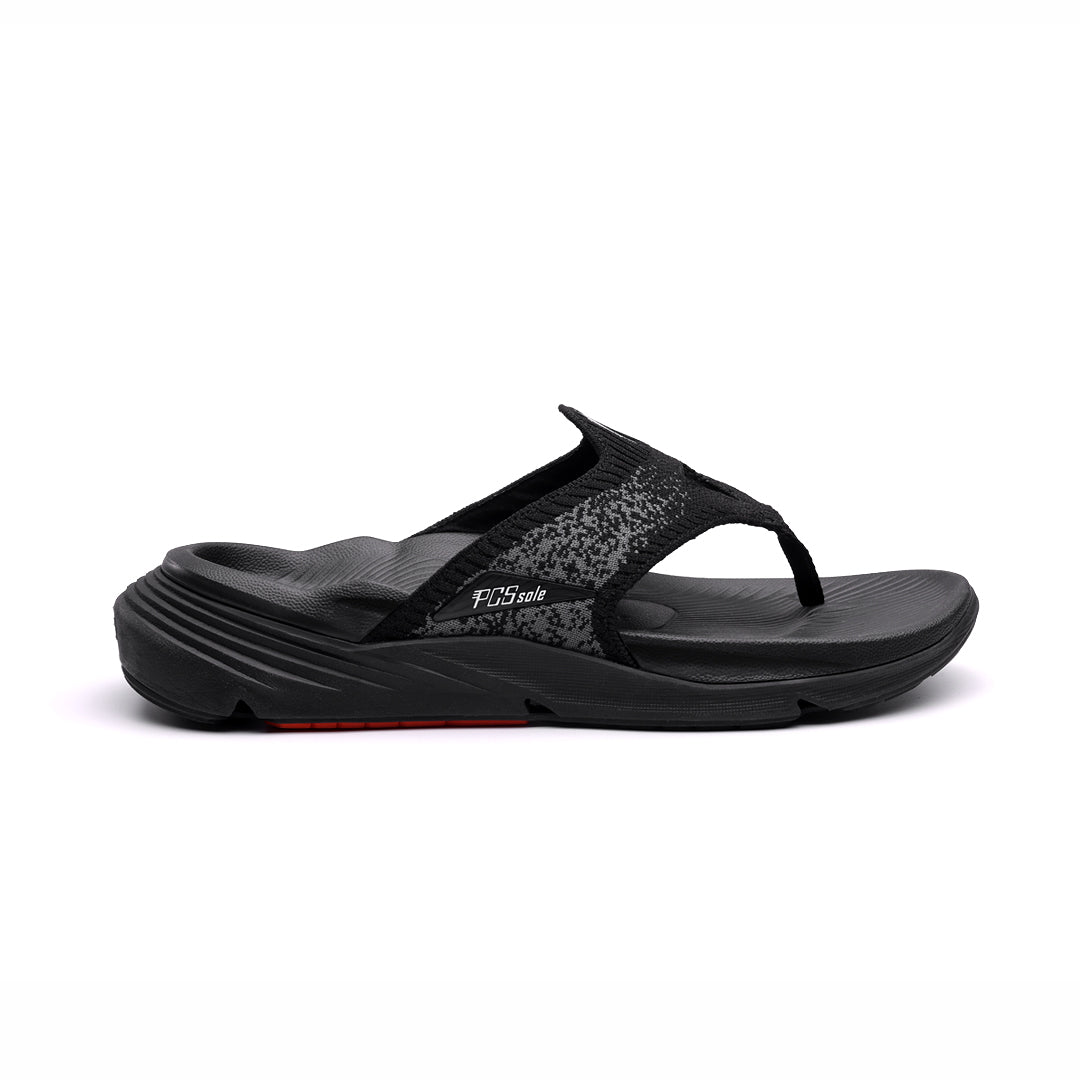

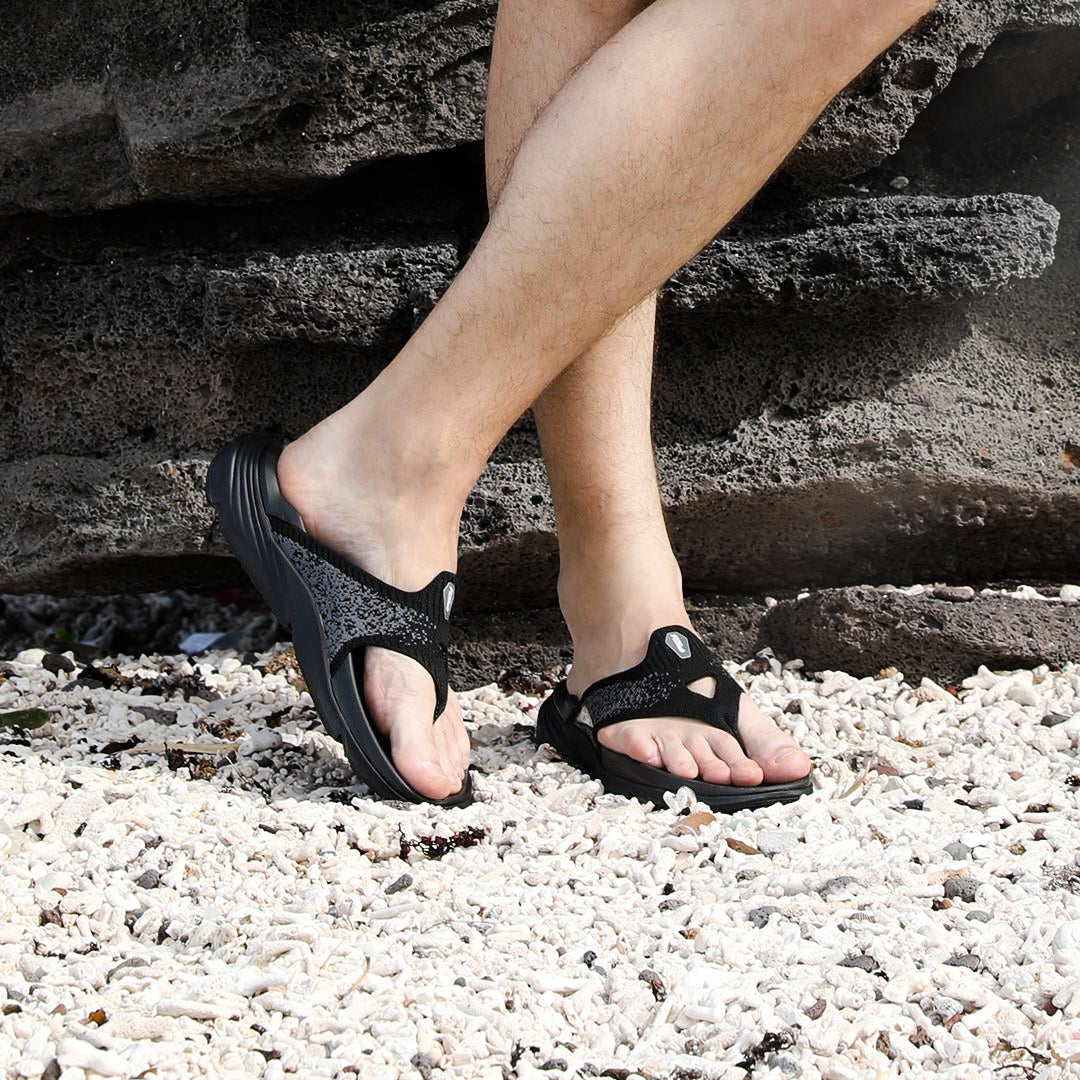
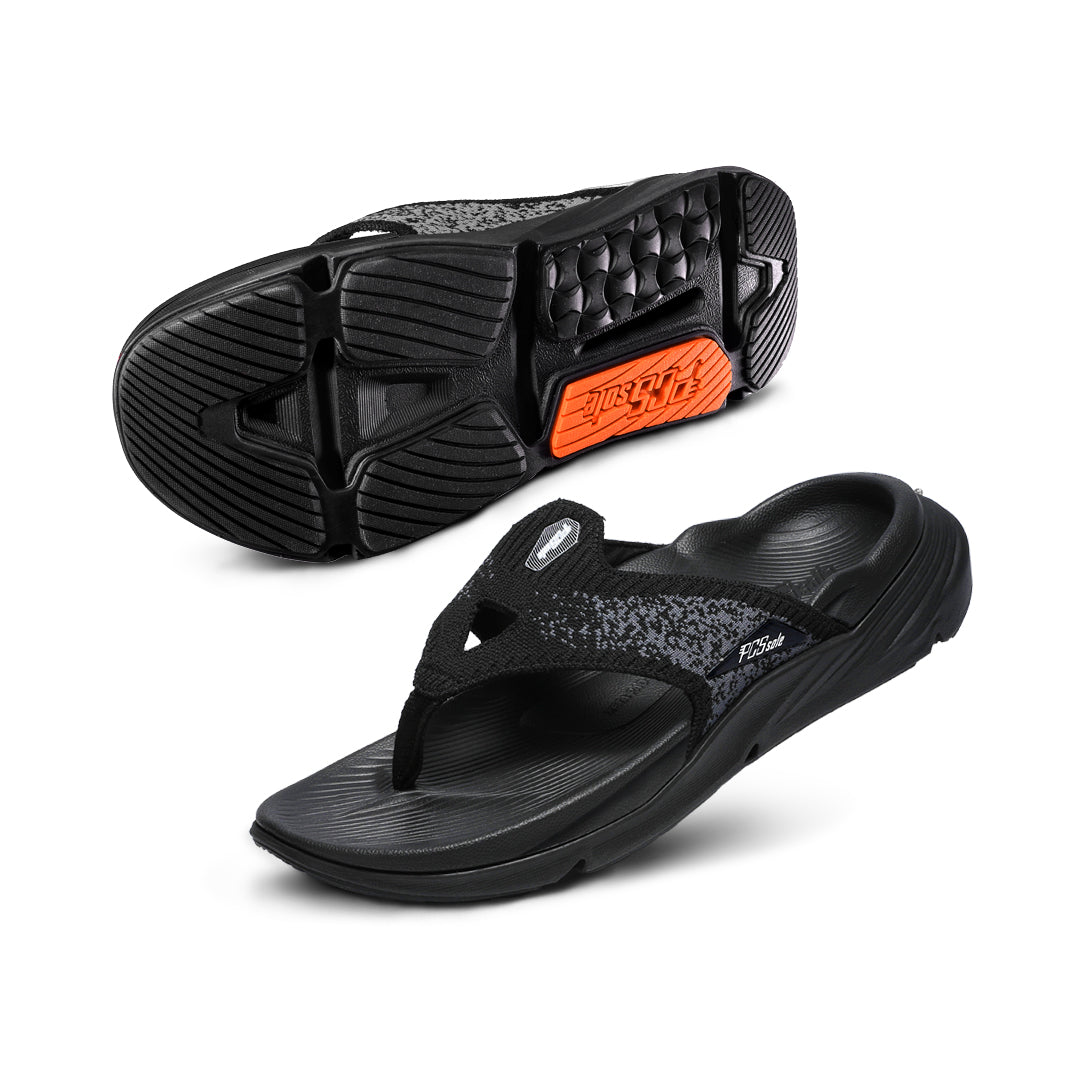

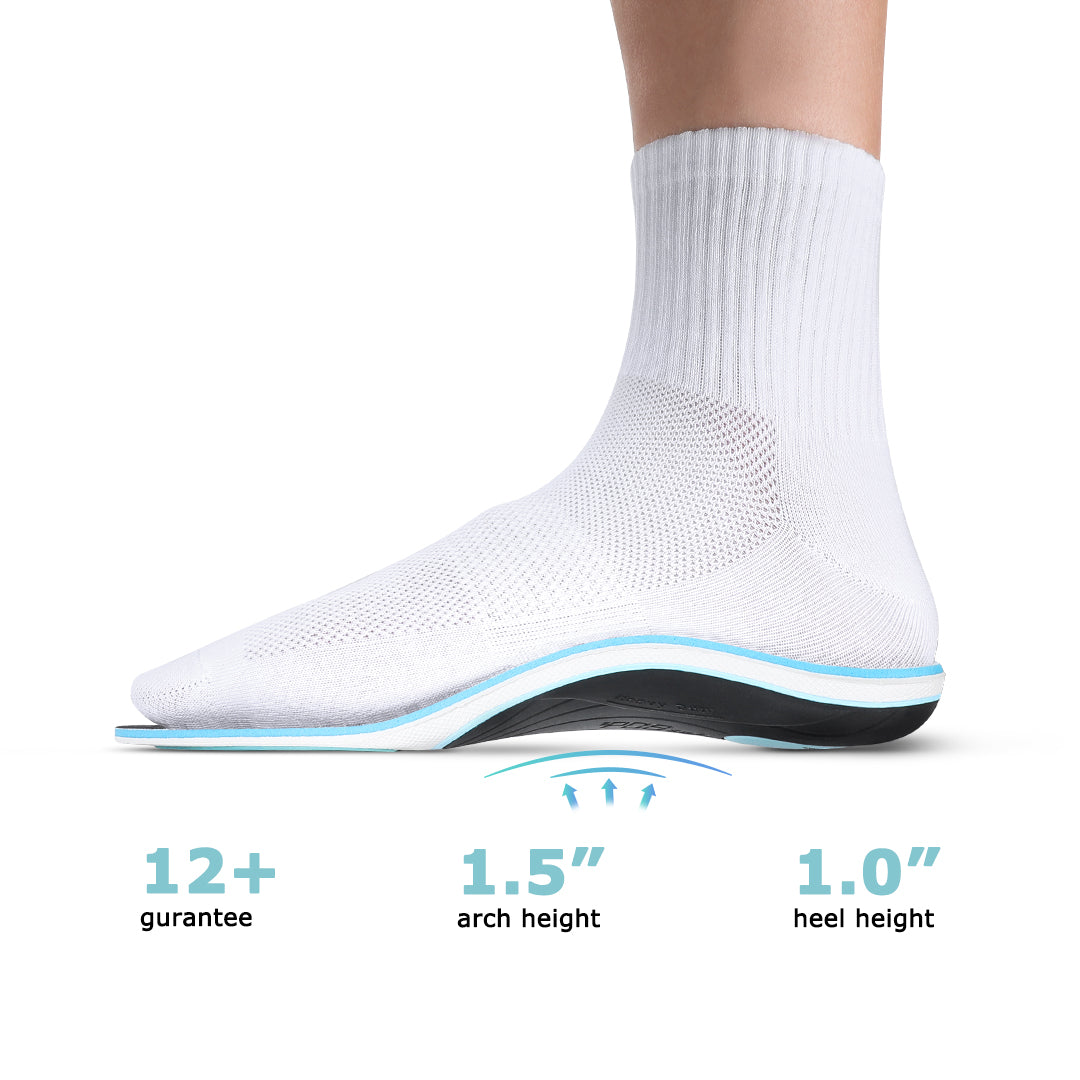
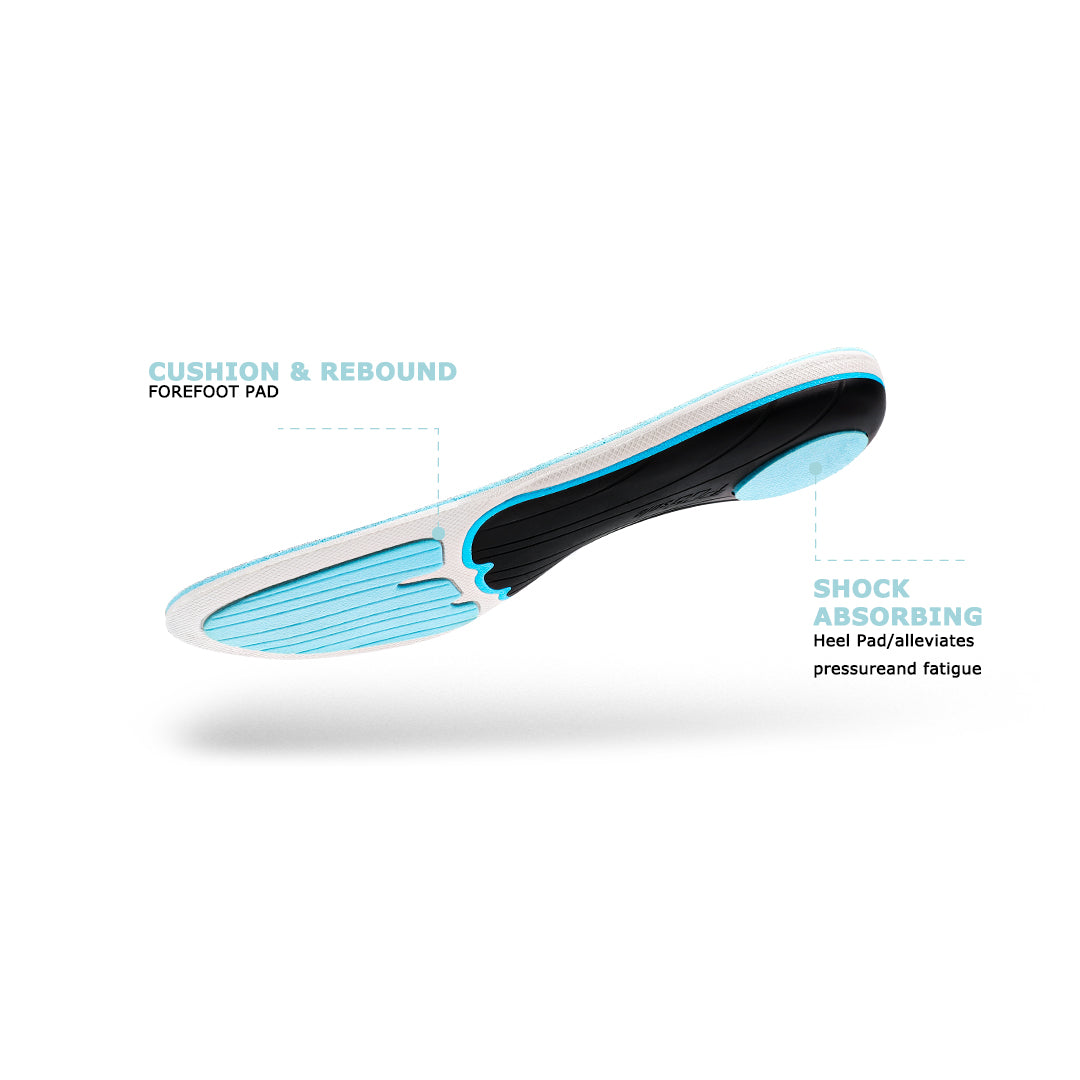
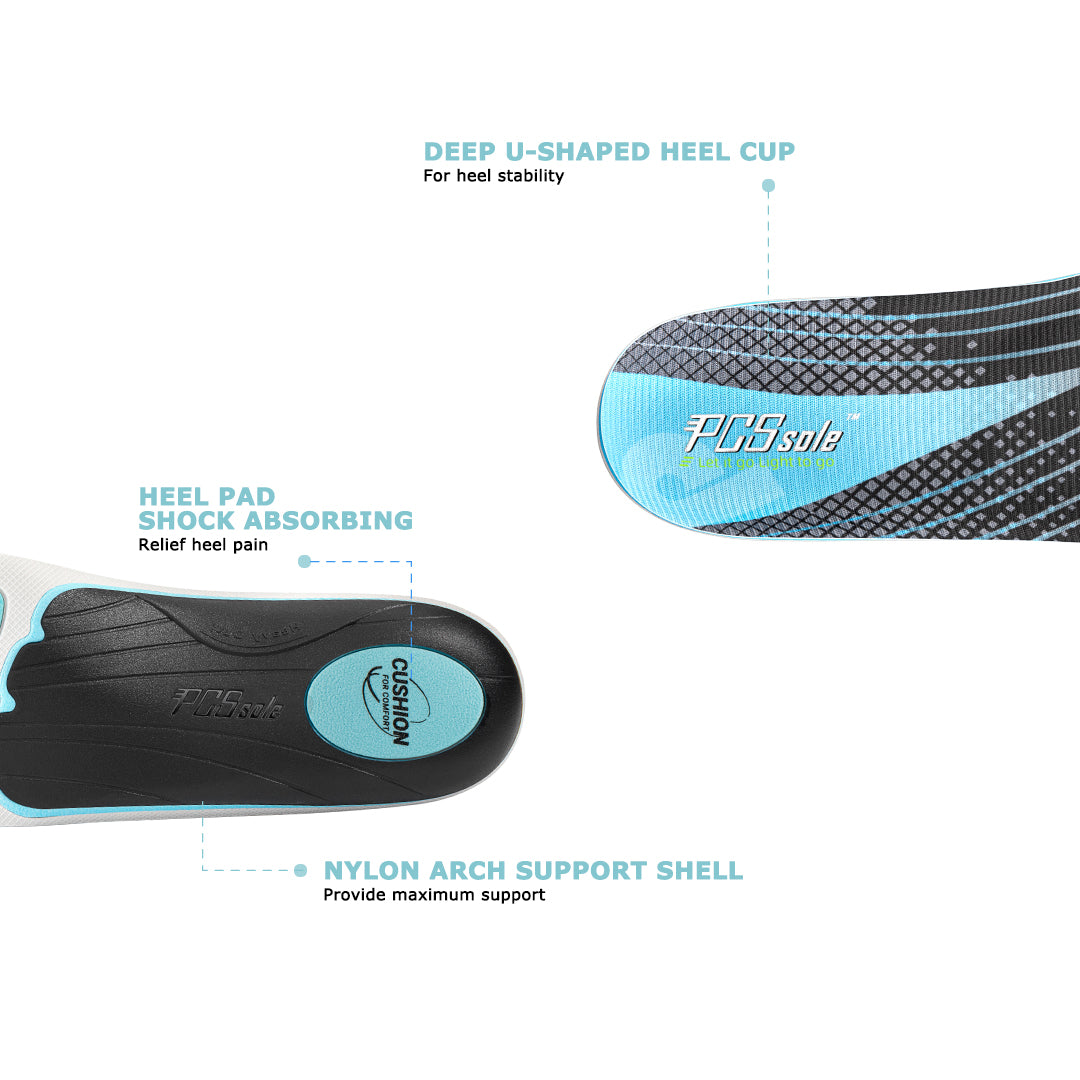
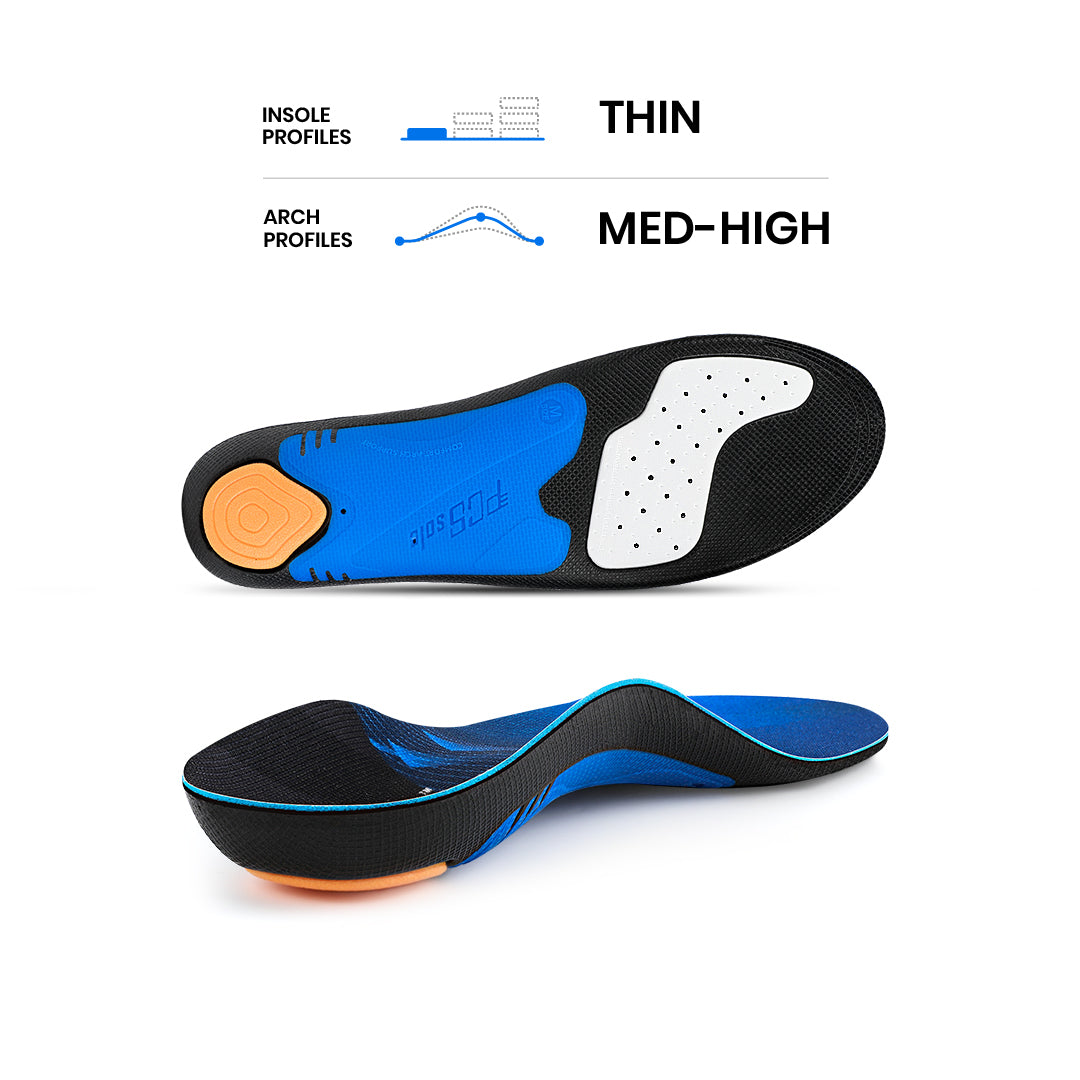
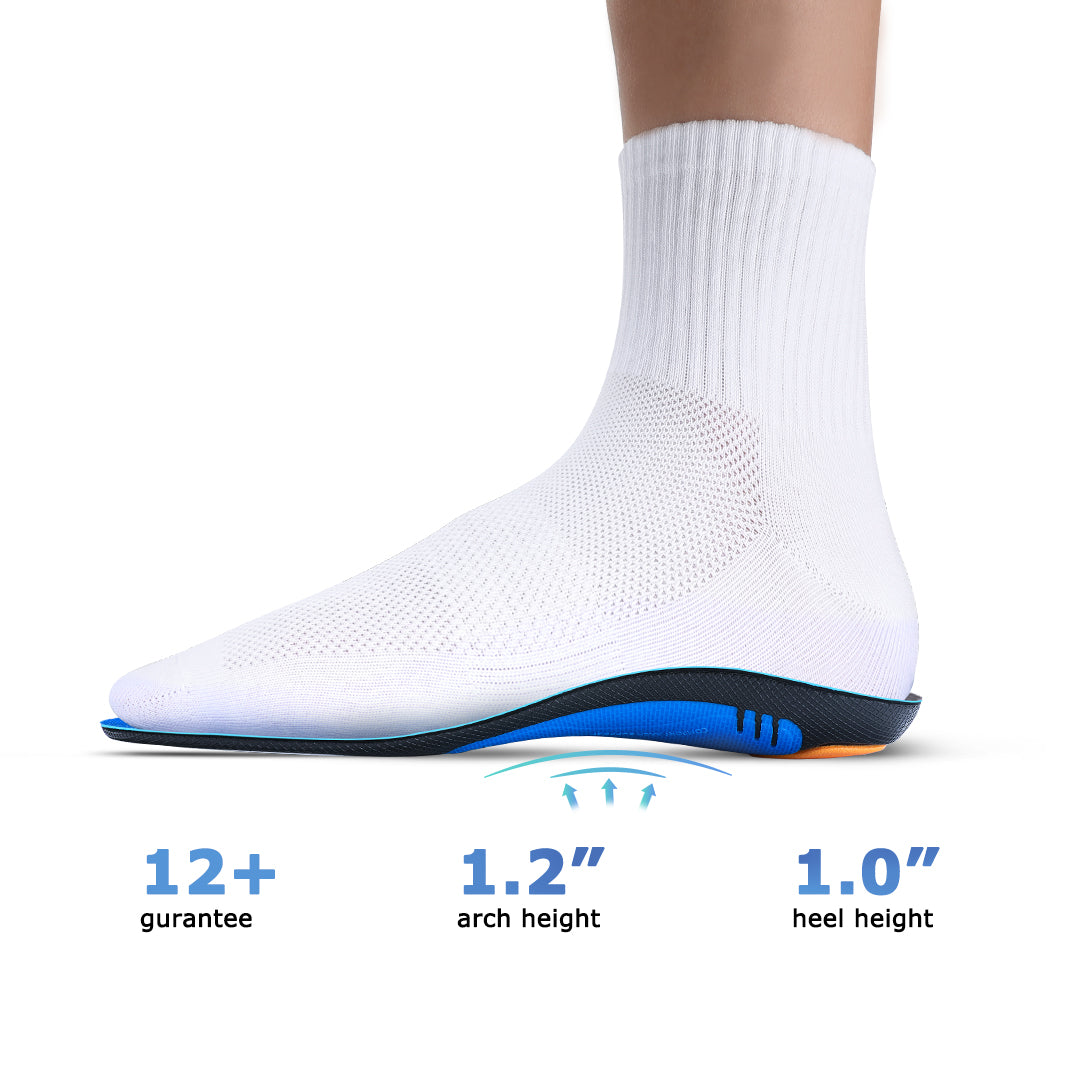
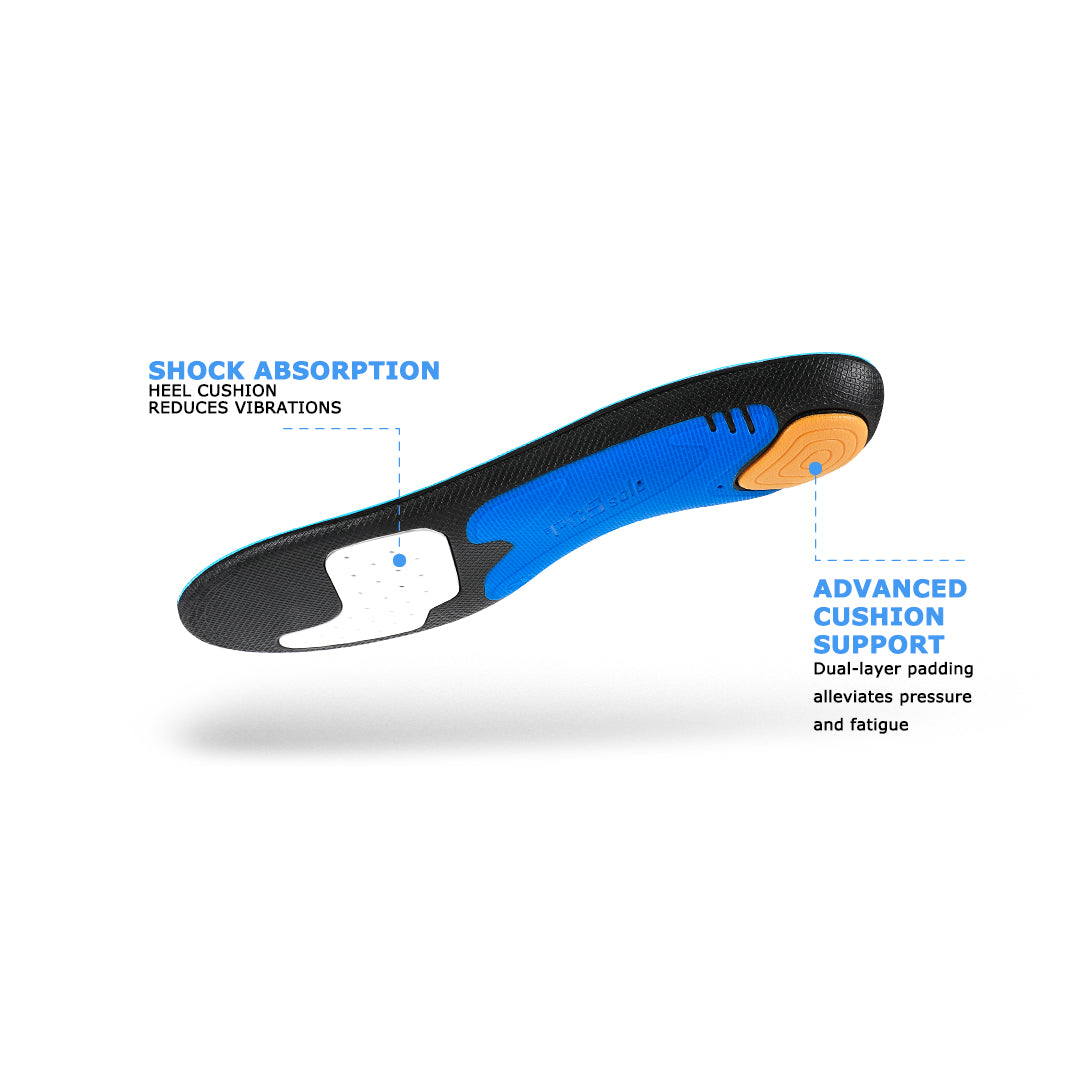
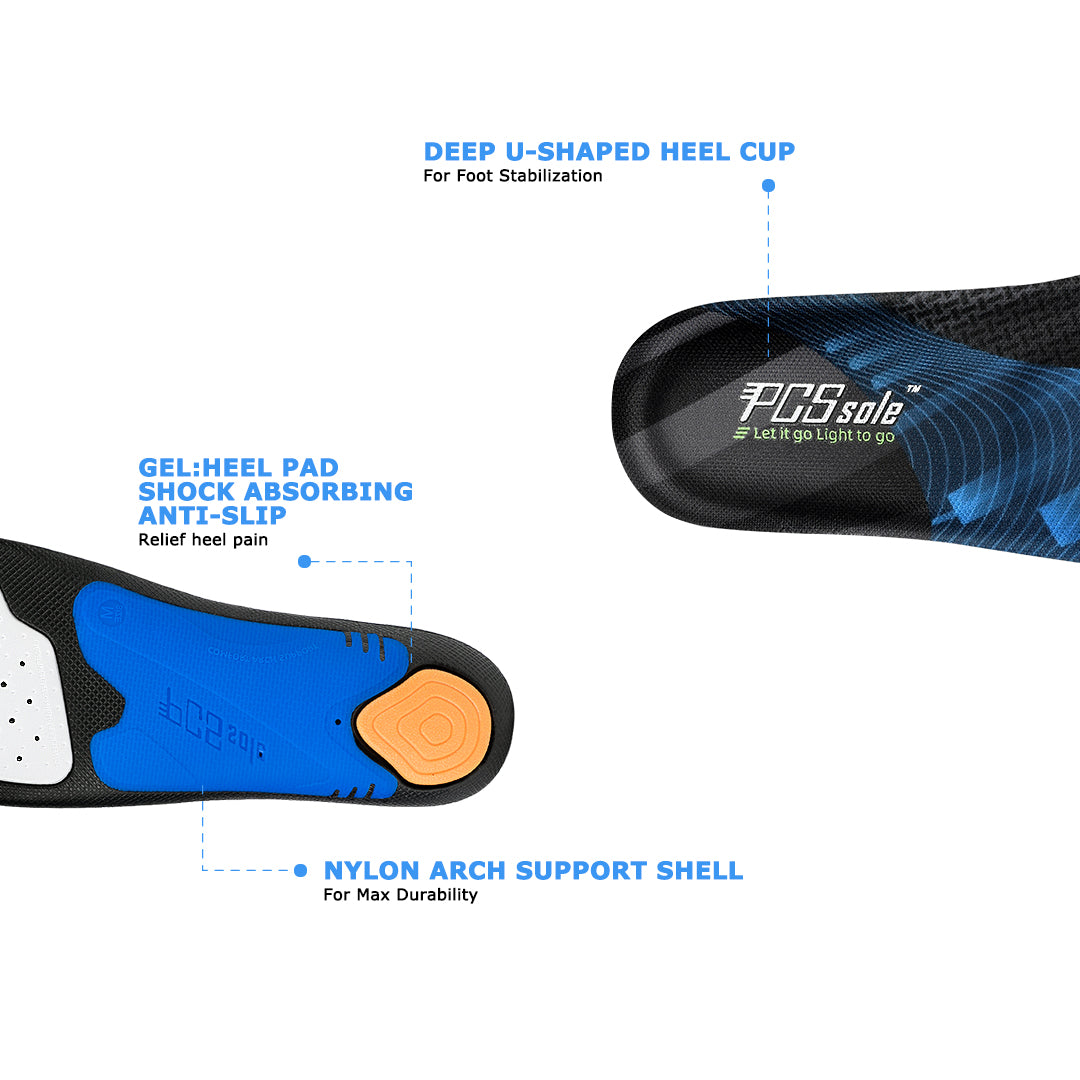


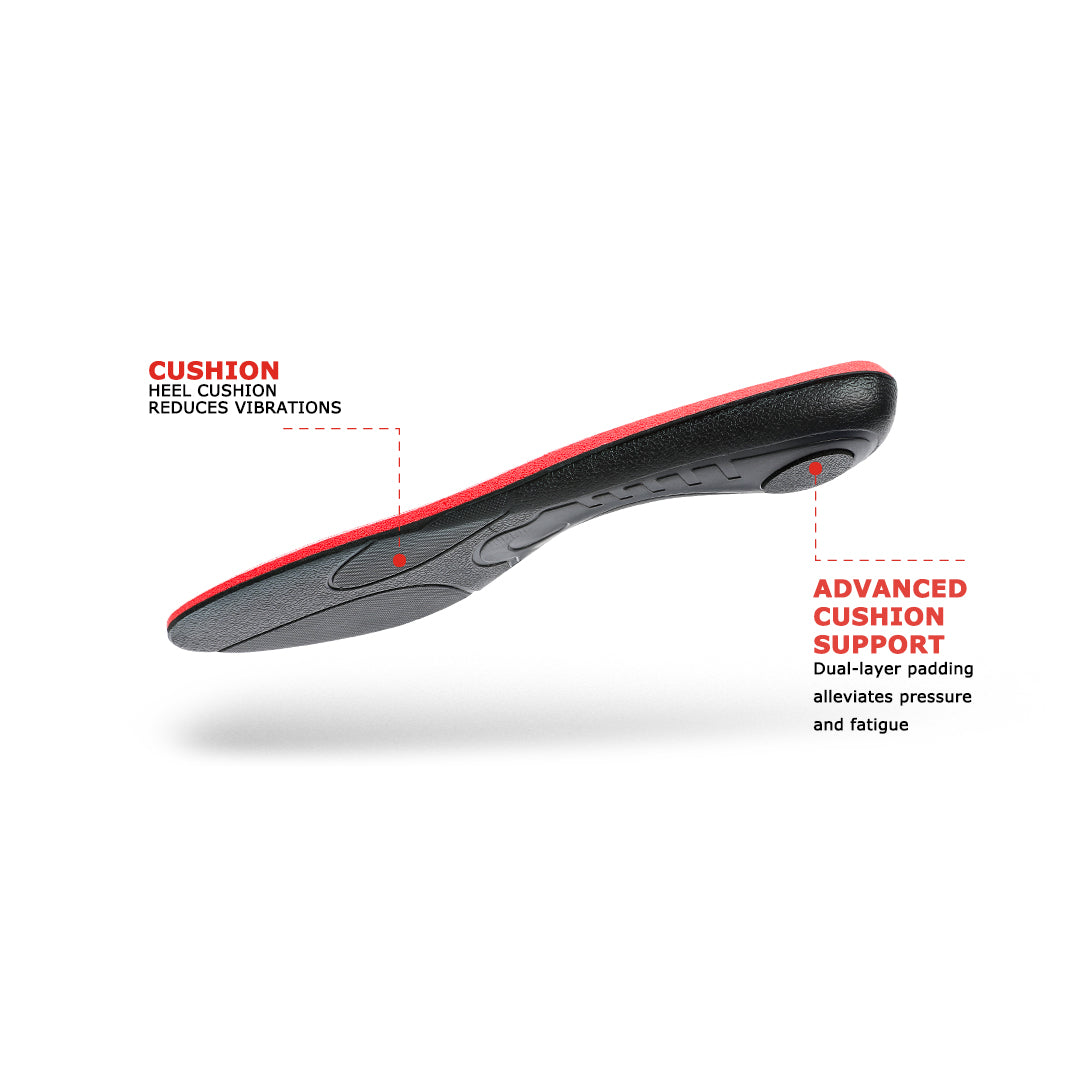
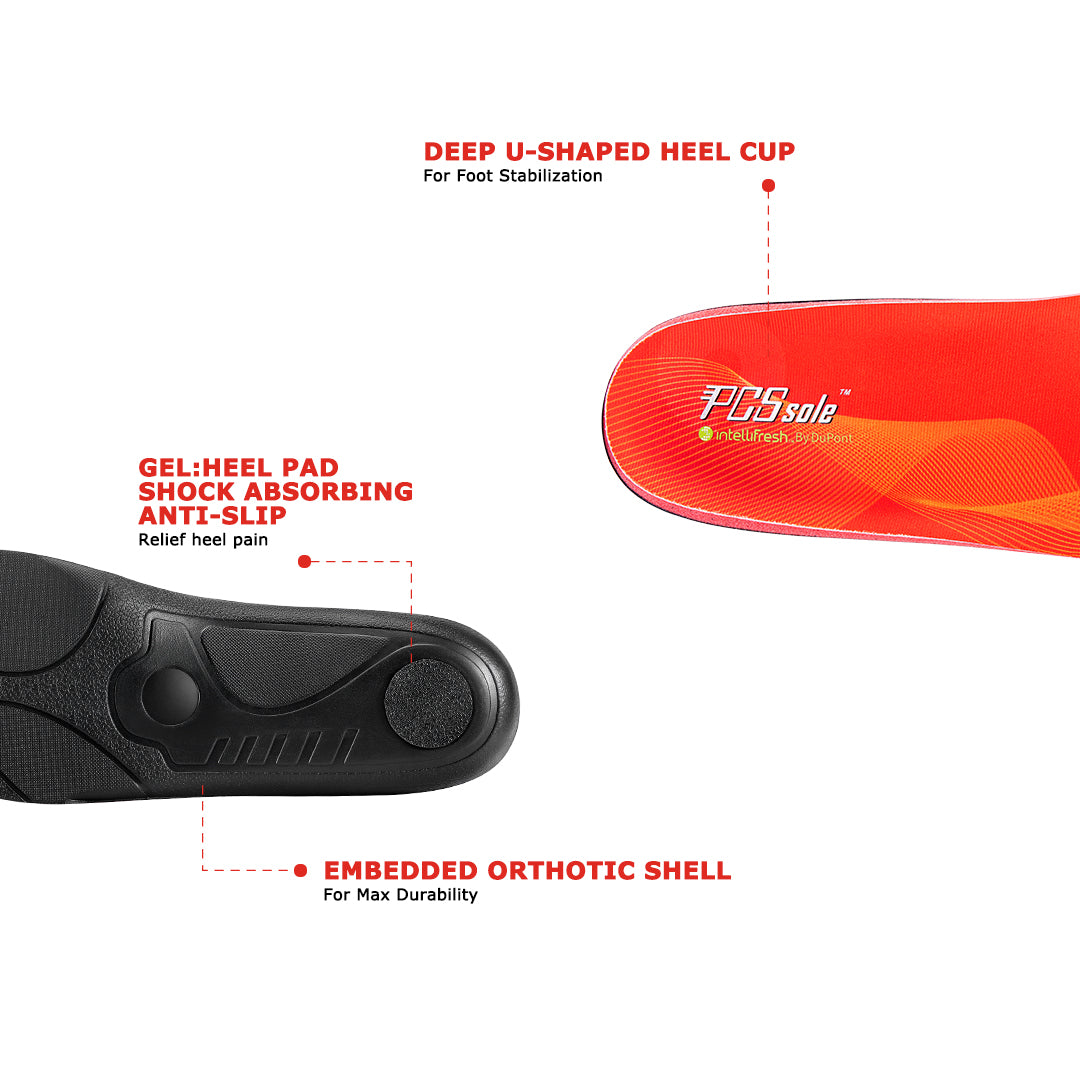
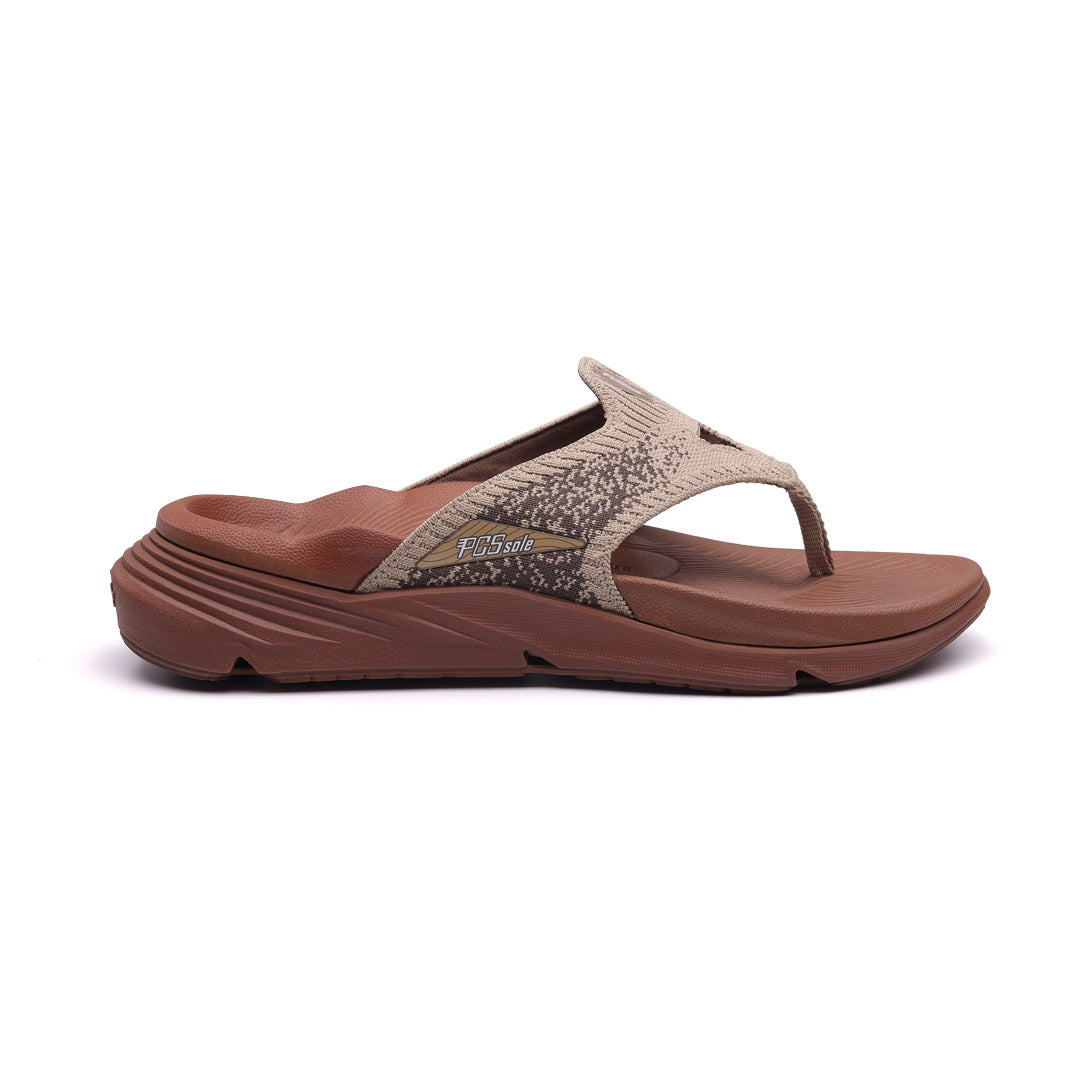


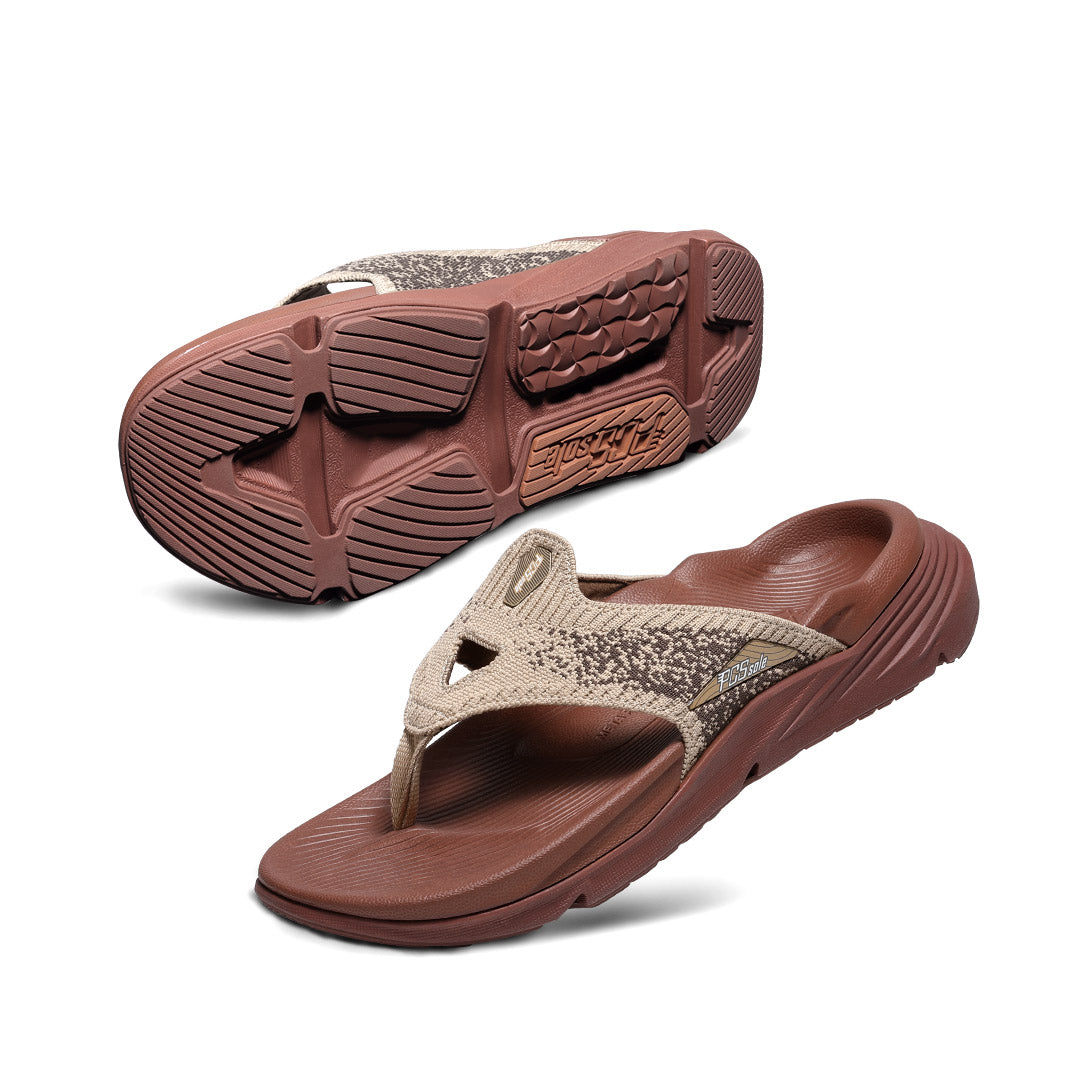
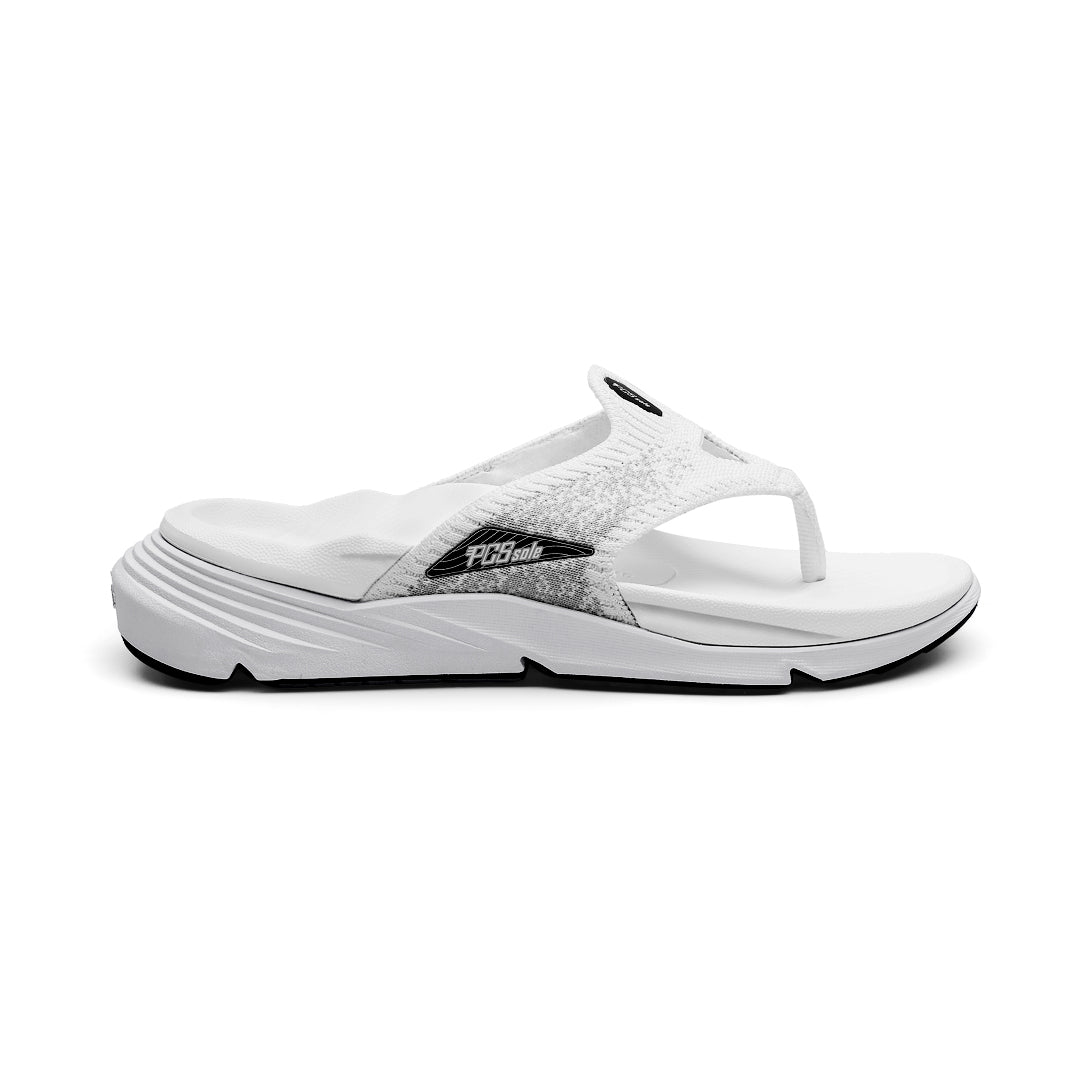

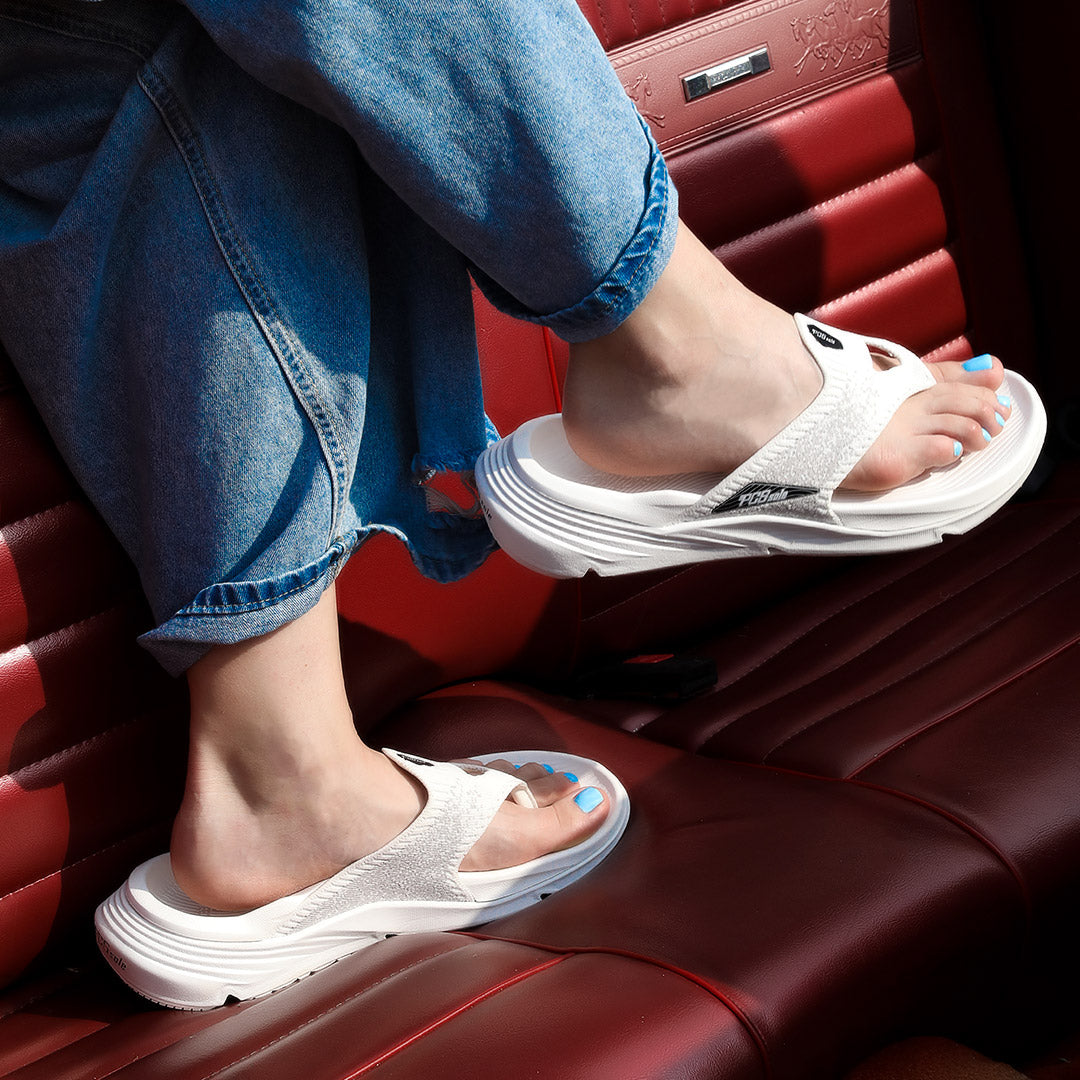
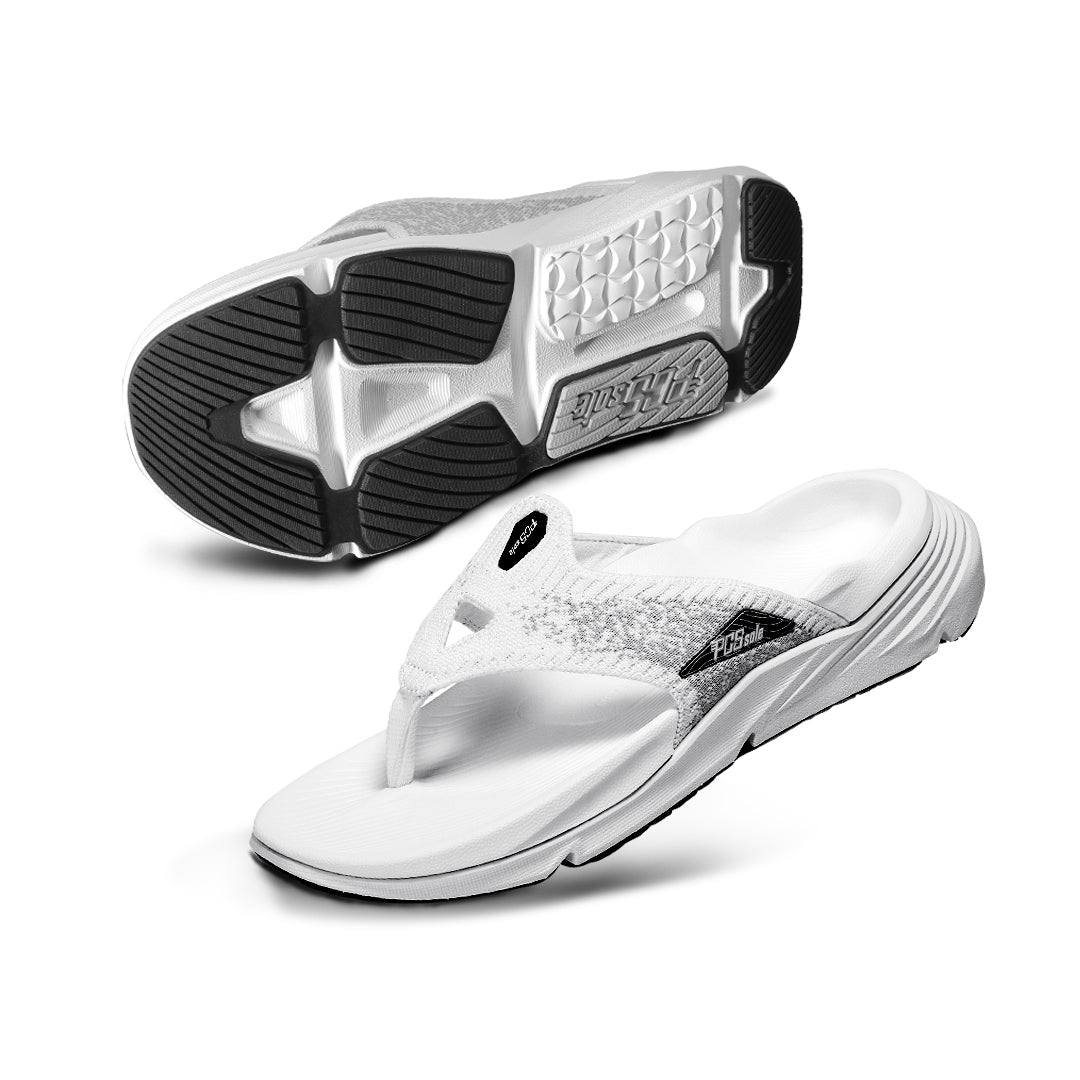
Share:
PCSsole Arch Support Flip Flops Now on Sale(New Arrival)
Are Foot Pain and Back Pain Related? A Podiatrist’s Perspective